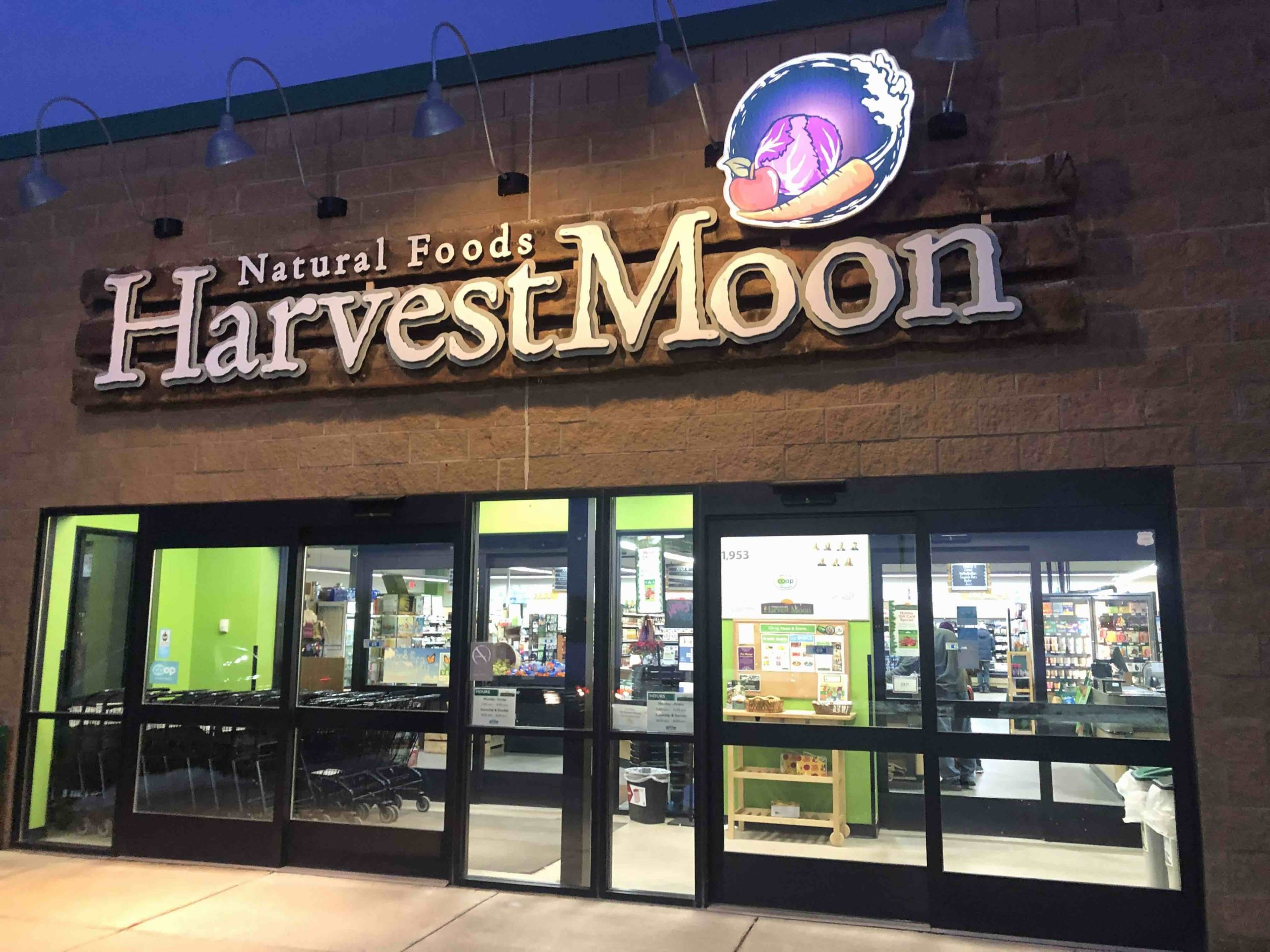

Share
This is the second of a two-part series on Harvest Moon Co-op in Long Lake, Minnesota. Part one was published Monday.
According to six former employees of Harvest Moon Food Co-op in Long Lake, the financial situation at Harvest Moon appears to be dire leading to the deterioration of the physical condition of the store. Furthermore, in November in response to the challenging financial situation, the board instituted a ‘temporary buying pause.’
The former managers we spoke with struggled with their experience at Harvest Moon but are still devoted to the co-op movement. Three sat with Workday at length to outline their aspirational vision for the future of co-ops.
High Turnover
The financial instability is related to the perpetually high turnover rate. The General Manager position has been unstable. Currently, there is no General Manager (other than then Board members assuming some of these duties), therefore there is no daily coordination and maintenance of operational standards and priorities.
Since the board can no longer or historically have been unwilling to pay market rates for grocery managers, the board has simply elevated front line employees. Managerial wages for those newly promoted are then below previous levels and further suppressed, the argument is that there wasn’t enough money for subsequent raises proportionate to the new responsibilities.
Problems persist as the status quo remains in place leaving workers set up to fail by the board and established administrators. Furthermore, lower-paid employees are being asked to take on greater responsibilities outside of their usual duties. As personnel problems continue to evolve, morale is declining.
The structural health of the store has suffered tremendously as cash flow problems mount and turnover remains high leading to declining health standards. The managers Workday spoke with said that repairs have been overlooked since plumbing and mechanical vendors have not been paid and no longer take calls from the store.
Documents obtained indicate that the Deli Department is the most profitable department and can dictate profitability for the store. However, according to those that spoke with Workday, the deli is treated with the most disregard, having been almost completely abandoned with very few products available for purchase. Simultaneously, sanitary standards in the entire store have also eroded. In one instance, the bulk bins have not been well maintained, allowing moths and larva to fester. Mold is also not addressed in a timely manner. In another example, the sanitation bill wasn’t paid, thus, trash and compost piled up creating unforgiving smells.

Attempts to save money have proved disastrous. The store had a habit of having an employee go into the electric panel to turn off circuits at night in an attempt to lower the electric bill. On one occasion in December 2018 a worker accidentally turned off the circuit for the refrigeration system. The result was an estimated $30,000 worth of lost refrigerated products.
‘Temporary Buying Pause‘
While financial challenges beset the co-op at its outset almost 8 years ago, the problems have been compounded by growing debts both to owners in the form of unpaid loans and vendor invoices. While large national distributors like UNFI are paid on time, local vendors, the backbone of the co-op’s mission of supporting local growers and producers take a financial hit.
Emails show that vendor concerns over pay are evaded with either a lack of responsiveness or making unkept promises. Even managers were misled on the status of payments to vendors from Harvest Moon’s financial managers. Many vendors simply refused to continue stocking the store.
Emails indicate that on November 21st, 2019 co-op management instituted what they called a “Temporary Buying Pause.” A “confidential memo” over email explained the directive,
“As we head into the holidays, the Board wants to ensure that our product purchasing dollars are wisely and appropriately allocated. To that end, the Board directs that for the period starting now through Dec. 7, no new vendors will be purchased and all non-essential product purchases will be discontinued. After Dec. 7, this directive will be re-evaluated. Purchases of all essential products from current vendors will continue without interruption.”
Those we spoke with mentioned that the buying pause was instituted without a clear plan or guidelines.
As managers asked for clarification, Board Vice President Ann R. Ackman responded over email on November 25th.
“We should not be out of any essential, normal products that a customer would logically think we should have. So, if we are [asked] the response should be something like: ‘I am sorry. We should have that product, so I will assume that it has been ordered. May we call you when it comes in?’ If the employee is not sure if the product is essential, he/she should simply say, ‘I am not sure about that product. May I check with the buyer for you?’ If it’s not on order, the response is ‘I am so sorry. That product is not on order.’ Apologies and an offer to follow through will be sufficient for most customers.”
High turnover on the staffing side and the lack of available items through the “Buying Pause” along with vendors refusing to restock until past due invoices are paid has led to empty shelves and frustration.

The “Buying Pause” also created confusion for vendors seeking to have their items sold in the store. The Wellness Department dealt with the most confusion since items with higher margins were no longer being stocked.
Another email about what vendors should be told indicated that,
“We are only ordering core products for the time being. That policy will be re-evaluated after Dec. 7 and we will get back to you as soon as possible after the 7th.”
In response to the status of the “buying pause,” Board Chair Greg Reynolds stated,
“This was a confidential internal policy decision and may demonstrate unethical behavior on the part of whoever provided it to you. It is still in effect.”
A Vision Forward
The six former employees of Harvest Moon Cooperative were often distressed in retelling what had happened. They came to the co-op full of enthusiasm and were excited to play an integral role in fulfilling its mission. They also looked forward to working at a store where they could advance their careers. In the end, what they found was a workplace that didn’t live its values and a sense of relief that the experience is now in the past.
There are lessons learned for them and a sense of clarity about what a co-op should be. We spoke with three at length about their vision for a functioning co-op. For them the primary problem is that the consumer co-op grocery stores have lost its sense of identity.
“What purpose does the co-op serve other than for a yuppie liberal who thinks they look good buying from a co-op?” said one worker. From their perspective it doesn’t make sense to compete in the exact same ways with Whole Foods but without the corporate tagline.
Since most groceries employ some combination of organic and natural food products, what historically made a co-op distinctive is no longer as relevant. Therefore what does make a co-op distinctive?
Collectively they agree that the thirst for expansion is actually a major barrier. They feel that there’s a way to grow the mission without being fixated on growing the physical store. Instead of expanding, they believe that co-ops should be responsive to and be a representation of the communities they serve. For them, that means that the co-op should be a focal point and an anchor to directly support vendors. For example, using the co-op’s resources to develop an urban farm.
Ultimately they believe that the current model is flawed since it is predicated on exploiting workers and vendors. They believe that if co-ops gave workers more decision making power, working conditions would reflect the values of the stores. In their view, there is too much attention paid to the products not who is producing them. Therefore co-op values should be rooted in workplace values and the dignity of the worker putting items on the shelf and those that harvested the product.
Finally, these workers argue that co-ops need to embrace diversity instead of seemingly being threatened by it. This would include a product mix that can draw in, the Long Lake area Latinx community with an attention to translations throughout the store in Spanish.


I don’t understand why being more responsive to and connected to the community isn’t more obvious to co-op management. Responding to community needs is the entire point of a consumer co-op, so dictating “right choices” from the top down never works for long.
The comment about yuppie buyers wasn’t totally true. Sue and I are 64 and 70, we both have serious health issues and are only still here (alive), because we have started eating much healthier for the last couple decades. We really appreciate your store, and until now didn’t have any idea of your struggles. You will be in our prayers for heavenly support and guidance. Thank you for being here. You were one of the reasons we were attracted to this little community.
I agree. We are a family that has lots of food allergies and we drive 30min to get here to stock our essentials. I love the coop and hope they can recover and thrive.
Your story about harvest moon is one sided. You’ve interviewed the managers that brought the co op to its dire state. The GM that was fired was paid a generous salary and yet she was never to be found at the store. Never pitching in when we needed help on the floor. Never was a leader that co op so desperately needed. Some of the employees never even met her. Never had employee meetings. The GM and the new grocery management kept us all in the dark. They weren’t even from the community and belittled the local community constantly. Several employees working under them wrote to the board asking them to step in because we saw that the new management was taking down the co op. They are the ones who decreased morale. Now that they got fired they’re bitter.
Harvest Moon is my favorite coop in the metro area, go check it out and support them. This article is biased in the negative.